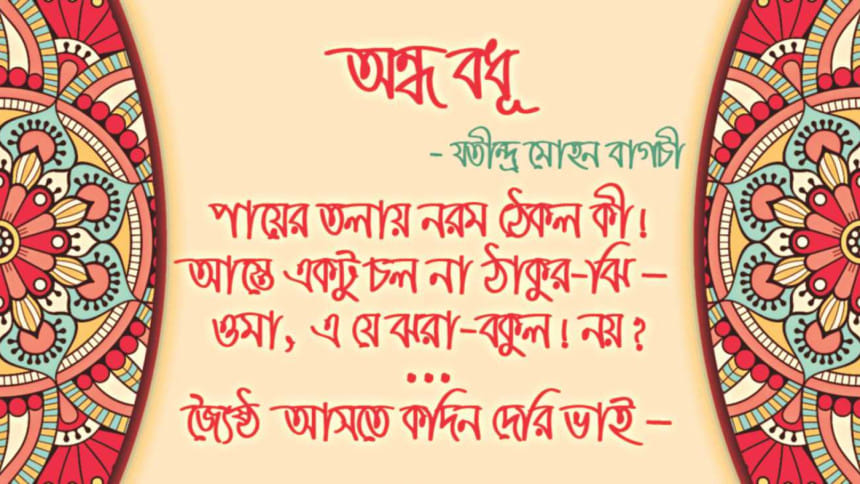Right to Information and the story of a Bokul tree

"Payer tolaye norom thek loki?
Aste ektu cholna thakurjhee.
Oma eje jhora bokul, noe?
Joistho aste kodin baki bhai?"
This beautiful rhyme by poet Jotindra Mohan Bagchi famously captures the Bengali sentiment for bokul phul, a very small sweet-smelling white flower. The words vividly describe the poignant feelings of a visually impaired woman who is being escorted by her sister-in-law for a walk in the garden. She implores her companion to let her tread softly over the fallen flowers under her feet and asks if they are indeed bokul phul, heralding the imminent arrival of spring. In fact, the bokul tree (Mimusops Elengi) has a hallowed place in the Bengali mind.
Readers may legitimately ask why I am evoking poetry in an RTI column. I would only request their indulgence to allow me to draw upon a personal experience in this regard.
A bokul tree stood in front of our house for over 40 years and covered the ground below with sweet-smelling flowers every spring. It was planted by my wife when we built our first house together in the Banani area of Dhaka city. Her love for bokul flowers was so deep that she insisted on buying a small bokul plant before the ground-breaking ceremony. My father helped her plant it in front of our boundary wall.
From that day in 1974 till early June 2016, our bokul tree grew steadily and spread its wide canopy over the sidewalk in front of our house. It provided shade to weary passersby during the day and silently showered the path with flowers during the night. Small girls picked them up every morning and turned them into garlands to give to their loved ones. Since the death of my wife in October 2013, I often watched this beautiful ritual every day and remembered the time when she would play with a handful of bokul phul brought to her in the morning during her illness.
But then came the spate of road building and other improvement activities in our neighbourhood, undertaken by the newly installed Dhaka North City Corporation (DNCC) authorities. Streets everywhere were dug up, but people took their suffering in good spirit, hoping for improved traffic soon. I too rejoiced at the prospect of better roads. However, I was soon filled with trepidation when I saw many trees being felled in the process. I shuddered at the thought of losing my bokul tree.
I knew that development may require some destruction first, but was hoping that things will happen systematically, based on clear policy, rules and regulations. I hoped that this would be particularly true for trees, many of which had grown big and beautiful over the years, including my wife's bokul tree. If the rules were applied evenly, I thought, I should be prepared to accept whatever happened.
But while the trees on some streets were being chopped down ruthlessly, those on other streets were spared. The reason for this distinction was not communicated. In some places, the trees were cut before drains and sidewalks were built on both sides of the street. In other places, the sidewalks were built without felling the trees as the drain pipes were dug into the middle of the road. I was hoping that this would happen on my street too.
To know more, I decided to use the Right to Information Act 2009. I sent an RTI application on May 3, 2016, by registered mail to the Designated Officer (DO) of DNCC asking for a copy of any guidelines being followed for the tree-felling activities in the Banani area and a copy of any specific decision taken in this regard and provided to the contractors, and finally, a copy of rules and regulations for felling of trees anywhere in Dhaka city.
Unfortunately, there was no response within 20 working days, as stipulated in the RTI Act. So, as per law, I appealed to the appellate authority, who happened to be the Mayor of DNCC. He too did not respond within the stipulated 15 working days. I then complained, as per law, to the Information Commission. Two months had passed since my first letter.
Meanwhile, one morning in early June 2016, work men arrived on my street and began sawing down my bokul tree. I was told that this was necessary as the side-walk would be built on the drain which could only be dug after removing the trees. I called the mayor right away, who told me that there was nothing he could do as everything was being done on basis of decisions carefully taken.
There was no point in asking whether there were any written records of the decisions, as it was already too late. My bokul tree and its companion mahogany tree were gone. However, about seven other trees on my street were spared. These surviving trees stand to this day to my great joy, with the sidewalks hugging them all around. Again, no reason was provided for the distinction.
I immediately sent a second RTI application, asking for the basis of such action. Unfortunately, no reply came within the stipulated period of 20 working days. This time, without making another futile attempt to appeal to the mayor, I sent a second complaint straight to the Information Commission, which promptly applied the rule and rejected the complaint, stating that I should have made an appeal first to the DNCC.
About my first complaint to the Commission, I was called to a hearing on October 24, 2016: more than five months since my initial letter. The DO of the DNCC was present together with his lawyer. Both denied having received my first application or the appeal, though they were sent by registered mail. However, they acknowledged that they had received the second application, for which a response was sent on September 8, 2016. The response contained a copy of an office order from 2008 relating to removal of trees which are affected by storm or are old or dead. The order required the formation of a committee composed of five persons from relevant government offices who would take the necessary decisions. It was accompanied by a circular dated March 7, 2016 relating to removal of trees felled or destroyed by a recent storm "in accordance with traditional practice".
When the commissioners asked the DO if such a committee was formed, the DO simply said that he did not get any feedback from the concerned department. The Commission then decided to hold another hearing a month later, on November 20, 2016, in which the official from the concerned department would be summoned. However, the latter failed to appear at the hearing and sent only his lawyers. As the matter could not be taken any further, the Commission simply took the decision that the DNCC must respond to my RTI application in writing, even if to say that they had no information to provide.
I got a letter from the DNCC within a few days, basically saying that they had no guidelines for felling of trees and no specific decisions were taken to cut the trees on my street and no written instructions were given to the contractors for this purpose. The matter ended there in effect.
So, what was the result of my RTI intervention? Nil, I am afraid. My beloved bokul tree was gone. The Information Commission was simply focused on process: ensuring that the DNCC responded to my RTI application, even if to say that they had no information to provide. It took no action on the fact that the DNCC failed to respond to my RTI application or the appeal in the first place, even though the law clearly provides for punitive and other measures. The DNCC got away unscathed by denying that it ever received my application or the appeal, even though I produced evidence that they were sent by registered mail.
That the RTI law was enacted primarily to promote transparency and accountability of public offices was lost in the Information Commission decision. As for the DNCC, one wonders if anybody, other than the few officials directly involved in the process, was made aware about the existence of the law and their responsibility under it for transparency and accountability to the public. If it continues like this, can the objectives of RTI ever be achieved?
And finally, will the mystery of why my wife's bokul tree got the axe while most of the other trees on my street thankfully remained standing ever be solved?
The writer is the Chairman of Research Initiatives, Bangladesh (RIB). Email: [email protected]

 For all latest news, follow The Daily Star's Google News channel.
For all latest news, follow The Daily Star's Google News channel. 








Comments